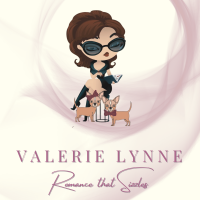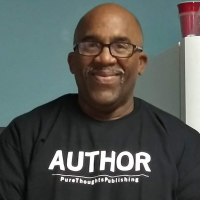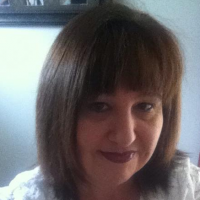1. Research is essential, but experience is the only thing that can yield authenticity.
2. Imagine situation and scenes, jot them down in a notebook.
3. Whatever you cut, keep -- in an organized way -- for use in other stories.
4. Elicit emotion by showing action, character reactions & other effects; rarely by telling.
5. Every action and scene must move the story forward; even intentional red herrings (as with crime or mysteries) are needful but MUST have have purpose beyond being merely interesting.
6 Questions to Define Your Characters: My Take
By A P von K’Ory
As writers we’re familiar with the five basic elements in every story: character, setting, plot, conflict and resolution. Writer Lekic suggests six questions all writers should ask themselves to help them better define their characters. I used them to a great extent in writing Shana and Roman’s story in the Golden Shana Series. Below is my take.
1. Why is the character unhappy with his or her current life?
I tend to do the contrary – I make the character as happy as a lark, to start with, then find a way to mess up that joy thoroughly and have them go through all the nasty processes in order to figure out how to achieve that sublime happiness again. This is what I do with Shana and Roman in the Golden Shana Series.
2. What does the character want to happen to change his or her circumstances?
When I get Shana and Roman to meet for the first time, I intentionally make their meeting place the world’s most famous and revered opera house, La Scala in Milan. This very symbol of culturedness, success, elitism and wealth becomes the kickoff of their beautiful and carefree life suddenly making them aware that they have feelings, emotions deeper than spectacular opulence and comfort. I want them suddenly confronted with their abject internal poverty. That constituted a more compelling challenge to me (and my protagonists) than the well-trod rugs-to-riches. I wanted a figurative riches-to-rugs story.
3. Why hasn't the character done so already?
In Shana and Roman, I create two people who have never really known basic unhappiness in an existential sense. Their wealth and social standing offer them joy, pleasure, privilege and power. Until they meet and are confronted with a new state of being: the lack of those privileges and power in their internal well-being. From the fairytale castle right into the sinister forest they can’t escape for all the trees and lack of experience.
4. What steps must the character take to achieve his or her goal?
In my story, Roman’s first reaction is his usual Alpha billionaire I-get-whatever-I-want. When this strategy fails he realizes he needs to change tack. When that, too, fails and he still can’t walk away and forget his goal, he realizes he’s up against a totally different “need†deep within him that demands he recognizes it and changes himself in order to reach his goal. The zillionaire Shana, on the other hand, has her demons when it comes to men. She, too, has to recognize that there are men, other than precious Pappa and her brothers, who are trustworthy and full of honourable intentions. She has to come to terms with the fact that the infamous global womanizer and Europe’s heartthrob, Roman Castell, is capable of genuine love. She has to learn to relinquish control and accept the important bond of fealty and loyalty to a man outside her family.
5. What stands in his or her way?
Each writer has to decide on this in accordance with their story and plot. I can’t reveal all of mine here for fear of the infamous plot spoiler alert!
6. What will motivate the character to persevere?
And here we come (miraculously!) to the resolution, which takes us full circle back to the where we began: Why the character is unhappy, and what he or she is willing to sacrifice in order to be happy. How they do this brings in the suite of conflicts and constitutes the story.
1. Write every day, even if it's just a paragraph
2. re-write every day.
3. Find inspiration in nature, people, and reading other books in your genre.
4. Your fictional character(s) must be likable. If the reader isn't invested in what happens to the character, he will likely put down the book.
5. Ask yourself, how has this character changed during the sequence of events in your story.
If you cannot write about what you know, write from your heart.
Research is a necessary evil, for all writers but remember it is for your benefit-not the readers.
Make a plan/format for your article/story but make it fluid;for changes to the story.
Make friends with your hero but give him/her flaws. Finally:Keep learning-no one knows everything!
I write about my solo travels so the most important thing is to write from the heart . To be able to tell the take without bias is very important though that does not mean you can not express feelings.
#TopTip - Read in the genre you want to write in and read a lot of it! If you don’t know what readers want, you won’t be able to write what they want.
Just write. You learn by doing. Crafting sentences and scenes and characters and worlds becomes easier the more you do it.
Understand the type of fiction writer you are. If you are not that fond of planning ahead, that's OK. If you need to plot every little thing in every chapter, that's OK. If you're in between, that's OK. If you are comfortable with how you write, it will be easier to do so.
Use timeline software. I write my stories, then go back and add everything to a timeline as part of my editing process. I've caught mistakes in dates doing this and can fix them before they become a problem.
If you're stuck writing, answer a prompt question. These questions can be serious or silly or informative. Prompts like, "Where's the coolest coffee house in your setting," or "What does the color blue mean to your cultures" or "What's the most terrifying carnival ride at the nearby theme park" may never make it into your story, but focusing on them can get you thinking about your tale, your characters, your world, in a different way--and perhaps break through that writing block.
Write down all names and places and a brief description of them. There's nothing so frustrating as trying to remember the name of a bit character that suddenly became more important, searching through the chapters trying to remember where you mentioned them, realizing where you thought you wrote them is not so, and re-reading half your book to rediscover them.
Talk it through first, then write without editing, then you can re-read what you just wrote, which will cause you to write and/or type was edited.
Focus on putting your first draft to paper without considering whether it will look good to a potential reader. Consider it a skeleton that will need flesh and blood later.
Never, never submit the first draft, or even the second, to anyone! Clothe that body first - no one needs to know that your writing body was once naked.
For good "spontaneous" writing, edit over and over again until your wording becomes crisp and you generate the emotion you desire to portray.
Check your paragraphs to see whether you have duplicated words. These generally jar a reader.
Find new, more intense, satisfying words for those that have become stale in your vocabulary.
I am very new to this, but I will tell you things that have helped immensely. I got invited to an author convention as a reader. I met over 50 authors. I had no intention at the time of writing. I joined many groups in that genre and interacted. I became friends with several and when I wrote a book; they were so helpful with everything from writing to self publishing.
Your 'story' is unique to you-if you use your own 'voice'. Do not ask relatives and friends to read your draft but use professional Editors. You need to think -long and hard about advice from your professional editor. Believe me- it can be painful sometimes but you know they are experts in their field. Do not be argumentative- learn from your mistakes.
Intellect over emotions or the other way around?! - Fiction vs Nonfiction. Imagination vs reality.
1. When the inspiration comes in your mind, you will know it. Considered that, you are well armed with the ability. Grab that opportunity and write everything down.
2. It's said that "ability is nothing without opportunity". But I strongly believe that, opportunity is useless without having the ability in the first place! Motivate and work on yourself daily.
3. Accept corrections at the very beginning of your writings. Examine everything before publishing. Ask for help from a relative, if you are a self-published author. Or, get an editor to read through your works before going public. Accept to be ashamed by one individual than by millions out there!
4. 'Continuous reading is the price that each author must pay' - Read daily, if you have time. But remember to leave some time off to reflect upon what you just read. Thus, increasing your creativity in the long-term.
5. Remember, promotion is the toughest part. This is the time when you are on your own (if you're a self-published author). Become more adventurous to see and grab the opportunities that are presented before you. Master timing. Try and explore different tastes. Mix with authors as well as readers.
Thank you for reading and have a great day!
Mwanandeke Kindembo.
1. Do not refer to your manuscript as your "shitty first draft." Give it a nickname that suits your genre or your main character so you feel good about it... a 'scrappy rough draft' is a book that will fight to get finished but a 'shitty first draft' is one that asks to be flushed away.
2. When your negative inner critic tells you you're not a writer, thank it for its opinion, then ask it to leave you alone for an hour so you can work on becoming a better writer.
3. Find other writers to be in community with. This is critical. (I love www.creativeacademyforwriters.com - it's free to join).
4. If you want to succeed as a career author, treat your writing like a business with dedicated time every day to write, to do marketing, and to learn something new about the author biz.
5. Celebrate small wins. Writing a book takes a long time and you need to appreciate and acknowledge the milestones.




















